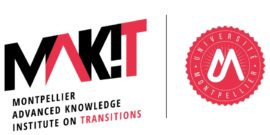Science and Technology (S&T)
Will the Pact for the Future Advance a Common Global Agenda on the Challenges Facing Humanity?
By Viviana Munoz Tellez, Danish, Abdul Muheet Chowdhary, Nirmalya Syam, Daniel Uribe
At a time when multilateralism is needed more than ever to address the global challenges and rising geopolitical tensions, paradoxically, the capacity and delegated power of the United Nations (UN) to uphold a rule-based order to keep peace and security is being weakened. Even in an increasingly multipolar world, a retreat towards unilateralism by world powers masked as national sovereignty is dangerous and highly unfavourable for developing countries. In this light, the United Nations Pact for the Future, a new forward-looking agenda of commitments adopted by consensus by UN Member States in September 2024, is a welcome initiative. The Pact for the Future, nonetheless, is short in delivering commitments on transformative changes in global governance and solutions to the most pressing global challenges. This document briefly examines some of the actions and high-level commitments in the Pact of the Future to strengthen multilateral cooperation and provides recommendations for their implementation.
(more…)
Summary of Carlos Correa’s intervention at the 25th Meeting of COMSATS Coordinating Council
Below is the summary of South Centre Executive Director Carlos Correa’s intervention at the 25th Meeting of the Commission on Science and Technology for Sustainable Development in the South (COMSATS) Coordinating Council.
(more…)


WHAT ROLES FOR SCIENCE IN CRISIS TIMES?
Outlook in the health, environment and agriculture interconnected areas
APRIL 07, 2022 – 10:00-17:30 CEST
Charles Flahault Amphitheatre, Institut de Botanique, Montpellier, France
163 rue Auguste Broussonnet 34090 Montpellier
Organized by the Montpellier Institute for Advanced Knowledge on Transitions (MAKIT), in collaboration with the South Centre, this event aims to provide a space for dialogue between scientists, decision-makers and other actors involved in the management of crisis, such as the current COVID-19 pandemic.
Discussions among eminent specialists will address new crisis scenarios related to health, environment and agriculture in their different dimensions, examine the complex science-policy-public interactions at play, and the role of science and scientists in the search for sustainable and long-lasting solutions for crisis resolution.
The conference will be organized in a hybrid format, with options for in-person and online attendance. Interpretation will be available in French and English.
(more…)
An Introduction to the UN Technology Bank for the Least Developed Countries
By Spring Gombe
Adoption, adaptation and diffusion of technology offer Least Developed Countries (LDCs) substantial potential to increase economic productivity and development and to narrow the technological gap with developed countries. It is in recognition of the need for sustained and sustainable mechanisms to enable the transfer of technologies between countries that the United Nations (UN) Technology Bank for the Least Developed Countries was born.
(more…)
Technology and inequality: can we decolonise the digital world?
By Padmashree Gehl Sampath
In this article, the author argues that techno-centric explanations of progress and industrialisation are deeply entrenched in a wider social context that encourages us to ignore the historical roots of current inequalities – which, in fact, are not amenable to a technological solution alone. Making the data economy work for all will require a serious reflection on how we want to frame this debate, and how to align ourselves to a common vision of social progress that technology could help to accomplish.
(more…)
Digital Transformation: Prioritizing Data Localization
By Bilal Zaka
After years of rather stable and predictable growth of telecommunications and software systems, the last decade has witnessed a tremendous shift towards unpredictable and disruptive innovations in every field of life. Today, we are experiencing the true social, political, financial and cultural effects of what is termed as globalization, deregulation, liberalization and convergence. Some major factors influencing this change are proliferation of mobile devices, ubiquitous wireless access to internet and increasing interventions of online or internet-driven technologies. While this digital transformation is inevitable, it is imperative that we equip ourselves to handle the negative implications of external influence caused by foreign dependencies and the non-regulatory nature of the new information ecosystem.
(more…)
COVID-19 Crisis and Developing Countries: Digital Health Perspective
By Ambassador Fauzia Nasreen, Dr. Azeema Fareed, Ms. Huma Balouch
Commission on Science and Technology for Sustainable Development in the South (COMSATS)
Technology and Innovation are quintessentially relevant especially in dealing with the multiple threats posed by COVID-19. Most developing countries are already under tremendous stress because of financial constraints, enormous development challenges and technology innovation and knowledge deficiencies. COVID-19 which has disrupted every walk of life is having a multiplier effect on many countries, posing difficult governance choices. Reform and reorientation of the health system and structure is fundamentally important in dealing with the public health issues in the post COVID-19 period, and digital health could help in providing solutions.
(more…)
The Fourth Industrial Revolution in the Developing Nations: Challenges and Road Map
By Sohail Asghar, Gulmina Rextina, Tanveer Ahmed & Manzoor Illahi Tamimy
Technological advancements and the amalgamation of several fields, including Advanced Robotics, Artificial Intelligence (AI), Big Data Analytics, Cyber Security, Cloud Computing, and Internet of Things (IoT) have brought the world on the cusp of a Fourth Industrial Revolution (FIR). This industrial revolution has the potential to sky rocket economic growth or on the other hand, cause countries to lag behind in terms of economic development if the potential of FIR is not exploited. A number of developed countries such as Germany, the UK and USA have put in place public policies that focus on implementing FIR in their respective countries. It is critical that developing countries also take steps to adapt FIR in order to take advantage of it as well as not be adversely affected by these technologies if not adopted. There are a number of reasons why developing countries are not able to fully implement FIR technologies such as lack of commitment, infrastructure and lack of skilled workers. The objective of this study is to identify the challenges and issues faced by the developing countries in the implementation of the FIR. This study proposes a strategic framework: “Centre for the Fourth Industrial Revolution (CFIR)” for developing countries in order to face the challenges of FIR. Consequently, CFIR will work on establishing research labs for capacity building through collaboration and establishing technology-based incubation centers. CFIR will bring together an international network of governments, leading companies, civil society and experts to co-design and pilot innovative policy and governance frameworks.
(more…)














